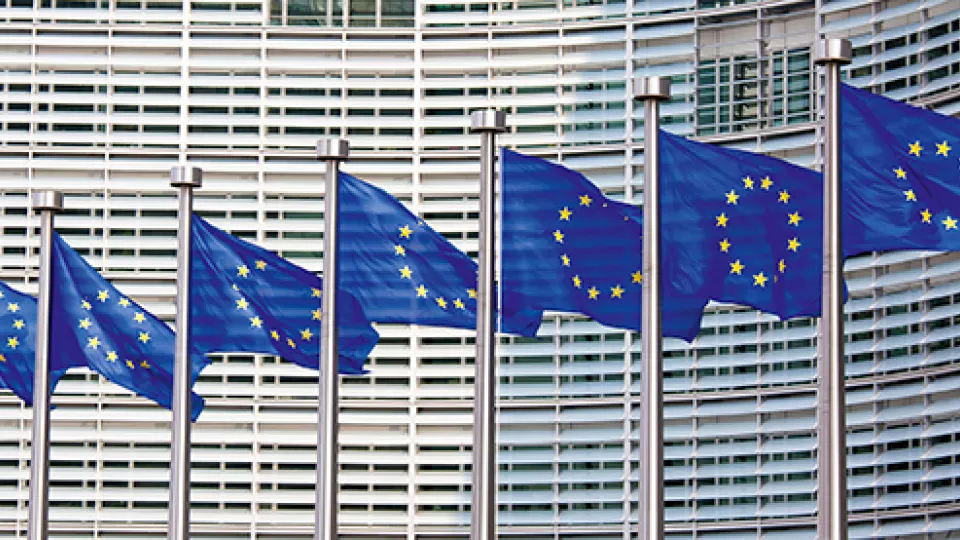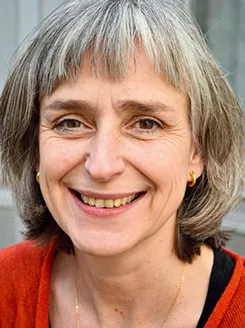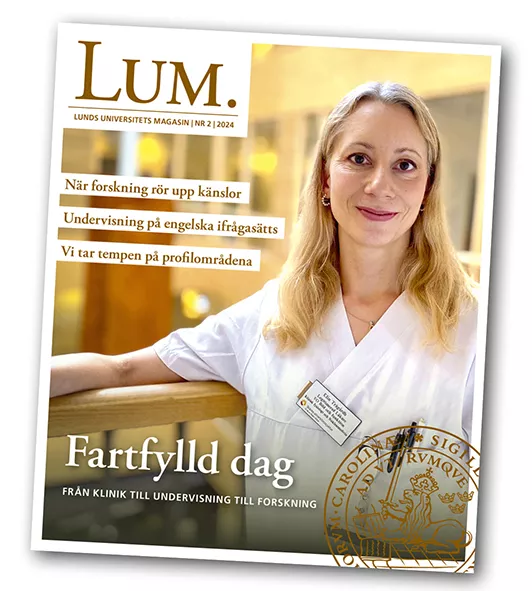Until the seventh framework programme, which started in 2007, there were many heavy sighs about how troublesome EU projects were to manage. It has become easier since then and there is considerable interest and many applications from LU. The latest statistics from Horizon 2020 show 1 600 applications, of which 200 were granted.
“That doesn’t sound like an awful lot, but is about the same rate of success in being awarded grants as with the Swedish Research Council – and it varies a little year by year. However, the competition is very fierce”, says Anneli Wiklander.
LU's strong position is due to skilled researchers and strong research environments
Anneli Wiklander says that LU’s strong position, not least in relation to the single-faculty universities KI, KTH and Chalmers, is due to skilled researchers, strong research environments and research infrastructures.
“Most of our projects are collaborative projects. We have highly relevant research that focuses on addressing social challenges and we have good collaborative partners in different sectors. However, it’s the individual projects that generate most money thanks to our ERC grants.”
The number of participations in projects has declined
LU also has some 15 coordinators divided between both large and small projects (see article on next page). “Coordinating a large project can often be a full-time job, but participating in a project can be good as well”, states Anneli Wiklander.
“The number of our participations in projects has unfortunately declined and we think participating is just as appealing, as it shows engagement in the entire framework programme. KTH is superior in this area, followed by LU and KI”, she says.
Looking beyond Sweden’s borders, both Denmark and Finland are ahead of Sweden. In Europe as a whole, LU is ranked 24th in money terms and 26th regarding participation. And the rest of Sweden’s higher education institutions are also to be found quite a long way down in this league. Vinnova collates the international statistics and also reports how much Sweden pays in to the framework programme and how much is received from it.
“In any case, we get out more than we pay in”, says Anneli Wiklander.
Demand for more direct results a disadvantage for universities
The framework programme asks more about direct results now than previously, which is why users such as industry, public authorities, special-interest organisations and others are important participants. This means that opportunities for universities on projects have diminished.
“Previously, there could be many more higher education institutions involved on the same project.”
Of course, a basic requirement for obtaining grants is to apply, and Anneli Wiklander is calling for more applications. For example, there is still funding available from Horizon 2020, which can be applied for until the end of this year. After that a new framework programme called Horizon Europe will start.
At present, LU has just over EUR 125 million divided between about 200 projects. LTH leads the league with 68 projects, followed by the Faculty of Science with 62 and the Faculty of Medicine with 45 projects. The other 25 are divided between the other faculties.
The "dry" faculties have more to bring in from EU grants
Anneli Wiklander believes that the “dry” faculties have more to bring in from EU grants, particularly if they start to cooperate and network within the university first.
“Humanities scholars, social scientists and lawyers have an important role in all technical, scientific and medical projects. However, it can be difficult for them to find their role in EU projects, but it will be easier if they are already involved in an interdisciplinary project.”
Anneli Wiklander thinks that the prime consideration when applying should be your own needs. Ask yourself what you need right now, perhaps a postdoc or a doctoral student? Then you can look at what the EU needs, look for suitable areas – and read EU’s applications thoroughly, which contain a lot of bullet point lists.
“And keep your ear to the ground when you are at conferences. Ask for help. Together with Lärosäten Syd, we have a presence in Brussels with good contacts, and of course you can always contact us at Research Services.”




